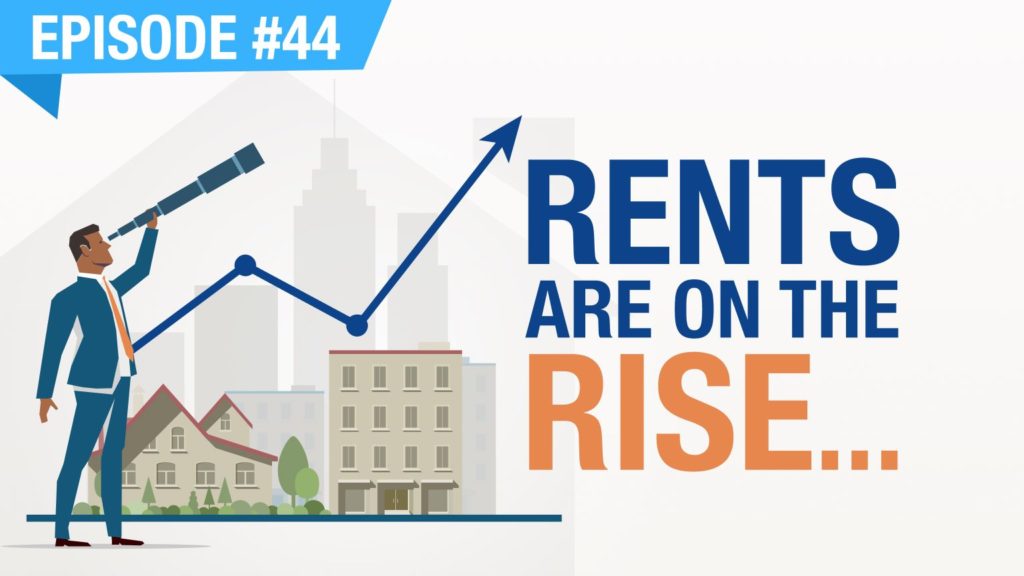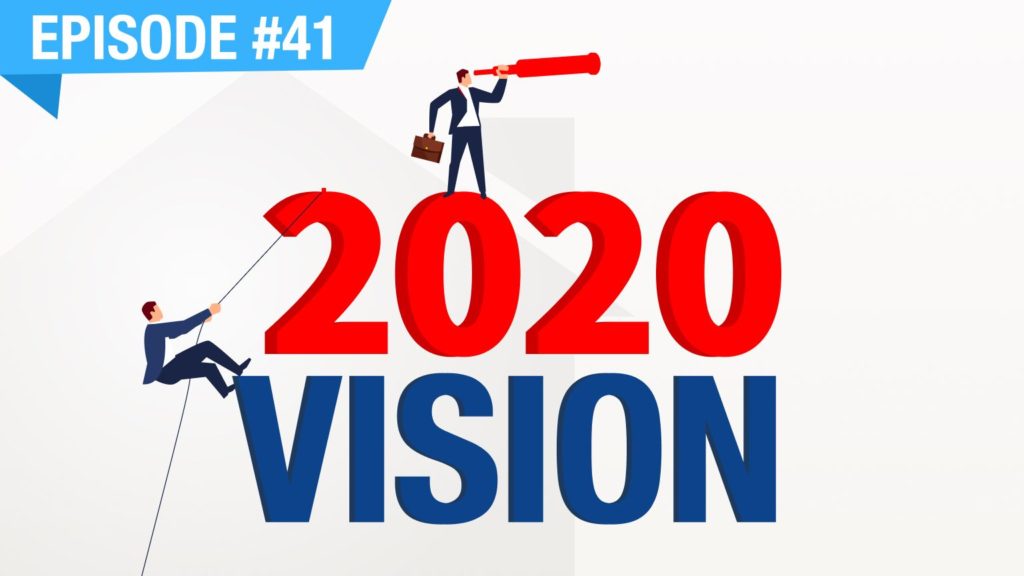Ep. #44 - Rents Are On The Rise In Durham

Show Episode Transcript
Rents are on the rise in Durham, North Carolina - and likely everywhere. I just got a bit of a shock upon checking what the Durham Housing Authority rent payment standard is for Section 8 Rentals this year.
----------
Intro...
Welcome to Episode #44 - Rents Are On The Rise In Durham - And Everywhere...
So we know that everything goes up in price and cost - inflation is a part of life. Pretty much nothing costs the same as it did 10 years ago. Now one possible exception to that, which comes to mind is electronics. Things like TV's are cheaper and much better than in the past. Also computers cost about the same as they always have, but are much better now for about the same price over time.
But I just went to Red Lobster this past weekend with my wife and son, and the Ultimate Feast (with a Lobster Tail, Crab Legs & Shrimp) is now $30. Not to long ago it was $25, and about 10 years ago it was only $20. And back then, it was one of my financial life milestones when I could justify and afford to pay $20 for a meal. It seems like nothing now, but that was big for me back then.
And then as now, I've managed my finances in Quicken since just before moving to North Carolina from Florida back in 1996, so I can literally scroll back in time (within Quicken) to see what I paid for anything and everything over the last 24 years.
So I went and checked Quicken to see what I paid in rent the last time I was a renter myself (back in 1998). I was paying $625/mo for a 2BR / 2-Story Duplex unit of around 1,000 SqFt. I checked Zillow and it says the rent Zestimate for this same unit today is $1,065/mo. So I checked Rentometer.com - and its crazy! It says this unit would rent for an average of $1,381/mo with the median rent for 2 bedroom units in this area being $1,450/mo!
That's crazy! I don't even think I believe that. But this brings me to why I'm speaking about this today. So it's been awhile since I had a vacancy to fill. My last vacancy was about 8 months ago. But yesterday I listed a 4 BR Townhouse for rent in Durham. And I had gotten it ingrained in my head approximate what things rent for here. I know about what to expect in rent from a 2BR and a 3BR, but since 4 Bedrooms are a little more rare for me, I wanted to do some extra research to make sure I list it for the right price.
Imagine my surprise when I checked Zillow, Rentometer (and other sources) - and I get results that suggest this 4BR Townhouse might rent for as much as $2,000/mo (maybe even a little higher). That's crazy! So I'm like - "No Way". No way this thing will rent for even $1,500/mo, let alone $2,000!
Now about 1/2 my rentals are Section 8, so I went to the Durham Housing Authority website to see if there has been any change to their Housing Choice Voucher (Section 8) payment standard for 2020. And to my shock and amazement, I see that they have increased their payment standard substantially for this year.
Compared to 2019, the increases for 2020 are... For a 2BR: from $990/mo to $1,088 (that's +9%). For a 3BR: from $1,356/mo to $1,461 (a little more than +7%). And for a 4BR: from $1,512/mo to $1,645 (+8%).
Now that may not sound like a lot, but in this market, an increase in rents of 7% to 9% is maybe 3 times or more the typical increase in rents that a Landlord may impose. And that is if any increase is imposed at all. My rent increases are normally somewhere between 1% to 3% per year.
So why does this matter... Why is it significant that rents are on the rise - and especially that Durham Housing Authority (DHA) has increased their rent payment standard for 2020 in Durham?
Well first, I often use the DHA rent payment standard as a gauge as to what I can expect to get in rent for a property. Now there are properties for which I'm getting far more in rent from a non-subsidized tenant than DHA will pay for that same home. But its still a great gauge as to the likely minimum rent that I can expect if I make the home available to someone with a Section 8 Voucher. But even then, I have to say "likely" (with air quotes) because the previously stated DHA rent payment standard is their maximum possible initial payment for a certain number of bedrooms. But that doesn't mean everyone with a voucher will qualify for that maximum amount.
For example, last year when the DHA maximum initial rent payment for a 3BR was $1,356, I had listed a 3BR Townhouse for rent at $1,320/mo, thinking it would surely be approved for this amount since it was below their max. Yet a particular applicant was only approved for $1,287/mo based upon her specific income. I took it, as she passed all my screening criteria to likely be an excellent tenant, and I was still sufficiently cash-flow positive at this amount - plus I wanted to avoid another month of vacancy, which would have cost me 3 times as much as the $33/mo decrease ($396 on the year). But now that she's coming up on her rental, I'll be requesting an increase.
And now that DHA will pay as much as $1,461/mo for a 3BR and this amount is more than justified by current market rents for a 3BR in the area - I'll certainly be requesting an increase.
But it goes even beyond that... Like I said, I use the DHA rent payment standard as a gauge of what minimum rent I may be able to get for a given property - so that goes into what I can PAY for that property.
Ideally you want the rent from a property to be at least 1% (or more) of your all-in cost for that property. Now there are certainly exceptions to this, and the "1% rule" (as its called) has some fluidity to it. And if you can get 2% or even 3% (which was easy during the downturn) then that's an out of the park home run.
So as an example, if my all-in cost to purchase and rehab a property to rental quality is $150,000, I'd want to be able to rent that property for at least $1,500/mo - 1% of $150,000. And if $50,000 of that were hard rehab expense, then my MAO (Maximum Allowable Offer) for that property would likely be around $90,000 (maybe even $85,000) to account for closing and holding costs. And then this property would need to appraise for $200,000 to make it a perfect BRRRR deal (BRRRR being "Buy, Rehab, Rent, Refinance, Repeat") where I'm able to pull out all of my cash and maintain 25% FREE equity in a cash-flow positive property.
But consider that if this hypothetical property were a 3BR for which my all-in cost is $150,000 - then I already know that in 2019, the most DHA would have paid in rents for this house was $1,356/mo - which is well below the $1,500 (1%) that I would ideally be seeking. Well to now have that increased to $1,461 potentially puts me right there near that 1% rule - and like I said, there is a little fluidity to it. I've done successful deals at .85%.
And if its a 4BR (or can be made into one), then it locks in easily for the 1% rule now that DHA will pay as much as $1,645/mo for a 4BR. And again, this is just my gauge as minimum... I can sometimes get even more from a non-subsidized tenant, although it goes both ways. I also have some properties with a Section 8 Tenant at a higher rent than an identical unit with a non-Section 8 Tenant.
But the most exciting thing about this increase in rents here in Durham is that the 1% rule becomes more obtainable with higher rents. I often get outbid on properties, and I wonder - "How in the world can they pay that much for that property!?" - but maybe this is a factor in that. Maybe they know that it will rent for more than I'm estimating, and so they are possibly analyzing based on a higher rent than I'm assuming. If so, then right there, they can pay more if they're correct. And maybe they also have lower rehab expenses - their own crew, bulk pricing, or they do a lessor quality rehab?
Whatever the reason, if you're getting outbid by your competition (as I often am) - knowing your numbers on rent can allow you to pay a little more. And with rents greatly increasing in this area, it may make the prices (that are also increasing) a little less out of reach than maybe previously thought. I know I'm going to be re-evaluating my numbers and what I'm offering based upon these higher rents and see what happens?
Well, at least I am after I actually get a tenant to pay at these higher rents. Sorry, but I need to see it (first) before I actually buy based upon these numbers. Thankfully I've got a vacancy to fill now, so I'll see. As I still don't believe these Rentometer numbers. If they're correct, I can rent this 4BR Townhouse for my highest rent so far. And that would also mean I'm greatly under current market rents for all my other properties.
And so that brings another question... How to handle rent increases with your current tenants? I actually want to be a little under market rent, so that the tenant knows they're getting a good deal - and thus they stay. But if rents are increasing here by 7 to 9% in just one year (as suggested by the DHA rent payment standard increase from 2019 to 2020) - then I'm WAY under market rent with increases in prior years of only 1% to 3% to my own tenants.
So I need to get back up to near market rent, but if I increase it by some high amount in a single year, that is certain to cause some concern and likely push-back. Tenants haven't likely been checking rents lately themselves, so they are certain to think it's unfair and start looking around for somewhere else to live.
Having a vacancy caused by rent increase is likely to end up costing more in the end than gained by the increase. For example, even if you increased rent by $150/mo (which is a 10% increase on $1,500/mo rent) - that additional $1,800 on the year would almost certainly be killed by a tenant turn - if the tenant decided to leave instead of paying the additional $150/mo. Just the cleaning, minor repairs, paint touch-up and carpet would potentially cost twice the amount of the increase. And that doesn't even account for a month or two of vacancy that could result.
For this reason, I tend to reward long-term tenants with lower rent increases during their tenancy - and then I'd go for the full near market rent increase at the next natural tenant turn. Not one caused by me pushing the tenant to leave because of a larger rent increase dropped all at once.
Its a balancing act - but you certainly need to increase some amount each year, if for no other reason than to get the tenant accustom to an annual increase of some amount. And you can fairly justify this with the Tenant by referencing logical increases in expenses that you've incurred for the home - in taxes, insurance or maybe HOA fees.
So don't be greedy - but don't be a push-over either. But I must confess that I'm far more willing to increase rent on a subsidized tenant, than I am on non-subsidized - because it's not likely that the Section 8 tenant will be the one actually paying any increase -anyway. If they do pay more, its likely to be minimal in comparison to what the government pays. So I want the maximum they're willing to pay. Its not like they're not trying to get the maximum out of me in taxes.
And I suspect one reason for their larger than typical increase in payment standard for 2020 - is to get more landlords to participate in the program. Here in Durham, DHA has some problems with their public housing properties (commonly known as "projects"). Beyond the expected issues of crime and drugs, they've got problems with carbon monoxide in the units from outdated heating systems and gas stoves. They've now likely got to spend millions to replace those old systems.
Google "Durham and McDougald Terrace"... Right now they have residents of the entire public housing community staying in hotels going on weeks now - yet another expense. So if they can get more landlords to make their rental units available to persons with Section 8 vouchers, it relieves a little of that pressure with each one.
And since my units are in locations and a condition that they are sought after by both those with and without vouchers - it makes perfect sense for DHA to get their payment standard up with (if not above) what landlords might otherwise be able to get from a non-subsidized tenant. And I love it, because DHA has never once paid late.
They give you more hoops to jump through, and the inspections can be a bit petty on some things - but overall, I'm happy to participate in the Section 8 Program. And the fact that rents are increasing here in Durham makes it a great time and place to be a landlord.
Imagine if I had bought that Duplex I was living in from 1998 to 2002 - instead of moving out and buying the home that I bought that year and still live in today? Even if I had to pay an inflated price to compel them to sell, it would have been a great buy, as rents have (apparently) more than doubled and I would be well on my way to having it paid off.
That's why there's the quote "Don't wait to buy Real Estate - Buy Real Estate and wait" - as both values and rents tend to increase over time to the landlord's great benefit. I've got a property that I bought back at the end of 2015 that was rented at the start of 2016 for then $1,380/mo - that is now rented for $1,530/mo, to the same tenants. But its still under market rent for the location, amenities, size and number of bedrooms, even with that increase over what is essentially 4 years.
Now Rentometer.com says that this home (as a 4BR) should rent for around $1,900/mo now (and I'm at $1,530). But really, this home has 5 bedrooms (its just that one doesn't have exterior egress, so its not officially an bedroom) - but at 5 bedrooms, it says it should rent for $2,500/mo!!! Crazy... Am I really $1,000/mo low on the rent for this house!? No, I don't think so. And I also don't think I'm low by $370/mo if you don't count it as an official 5 bedroom home due to one of the bedrooms being interior (so no window). But even if I am low, I'm not increasing the rent that much on what have been great tenants over 4 years. They are now due for renewal, so there will be an increase, but nothing like that. Maybe something like 3% to bring it to something like $1,575.
I'm not trying to be greedy and don't want to give my long-running great tenants an excuse to leave. Also the rent Zestimate of this home at 4 bedrooms says $1,500/mo is the correct rent. So dropping the debate about the 5th bedroom, maybe Rentometer just got some wrong numbers entered into their algorithm for Durham. Regardless, rents are on the rise in Durham and its a great time to be a Landlord.
So get some property here and I'm happy to manage it for you. I'm also happy to be your Realtor if you need to buy or sell property in the Triangle area of North Carolina. Checkout BlueChariot.com - you'll see my pretty face near the bottom of the home page.
Outro...
Disclaimer
In this episode of the... and Landlord Podcast, I speak about RENT increases here in Durham, North Carolina. And one example I give is that of my own... The 2 Bedroom Duplex unit that I lived in for 4 years when I was last a renter myself (from early in 1998 to the start of 2002), where my rent was $625/mo (increasing to $645 in the final year).
Well now here 18 years later, that exact same 2 Bedroom Duplex unit (of ~1,000 SqFt), is suggested by Zillow and Rentometer to have an average rent value of $1,381/mo, with the median rent for 2 bedroom homes in the area being $1,450/mo... That's crazy! If correct, it means that rents here have more than doubled over the last 15 years or so since the boom and bust occurred in Real Estate.
But think of that... This Duplex is nearly 20 years older than when I last lived there. And I drove by it recently, and it doesn't look like anything major has been done to update it or improve its appearance or condition. If the same people / company owns it now as then, they have likely paid it off by now (or are near to doing so). So they are not only getting more cash-flow from this now 35 year old property than before due to greatly increased rents, but also because they may no longer have a mortgage to pay from those rents.
What is better than Rental Real Estate Investing!? You end up with what is essentially a FREE house - because the tenants pay all the bills and expenses. You get cash-flow for life. And that cash-flow greatly increases over time due to the mortgage pay-down / payoff; and as result of annually increasing rents. Not to mention the incredible tax benefits and the likelihood that the property increased in value despite having gotten older. And did I mention the tax benefits? You get to depreciate the value on paper as it actually appreciates in real value... Wow - Seems like you'd go to jail for that, but its allowed!


